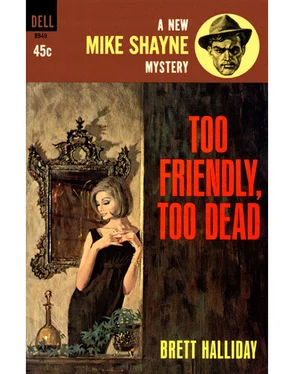Dan Fesperman - The Double Game
Здесь есть возможность читать онлайн «Dan Fesperman - The Double Game» весь текст электронной книги совершенно бесплатно (целиком полную версию без сокращений). В некоторых случаях можно слушать аудио, скачать через торрент в формате fb2 и присутствует краткое содержание. Жанр: Шпионский детектив, на английском языке. Описание произведения, (предисловие) а так же отзывы посетителей доступны на портале библиотеки ЛибКат.
- Название:The Double Game
- Автор:
- Жанр:
- Год:неизвестен
- ISBN:нет данных
- Рейтинг книги:3 / 5. Голосов: 1
-
Избранное:Добавить в избранное
- Отзывы:
-
Ваша оценка:
- 60
- 1
- 2
- 3
- 4
- 5
The Double Game: краткое содержание, описание и аннотация
Предлагаем к чтению аннотацию, описание, краткое содержание или предисловие (зависит от того, что написал сам автор книги «The Double Game»). Если вы не нашли необходимую информацию о книге — напишите в комментариях, мы постараемся отыскать её.
The Double Game — читать онлайн бесплатно полную книгу (весь текст) целиком
Ниже представлен текст книги, разбитый по страницам. Система сохранения места последней прочитанной страницы, позволяет с удобством читать онлайн бесплатно книгу «The Double Game», без необходимости каждый раз заново искать на чём Вы остановились. Поставьте закладку, и сможете в любой момент перейти на страницу, на которой закончили чтение.
Интервал:
Закладка:
They found the diary. Bradlee gave it to Angleton, who promised to destroy it. Instead, telling no one, he stashed it in his files.
So that was my neighborhood, a high-toned ghetto of spies and policy makers. And here I was now, decades later, crossing the shadows of its maples and dogwoods as I zeroed in on yet another cache of secrets.
In case you’re wondering how I figured out the location, it was a breeze once I read the opening lines of Ashenden. The key sentence was right there on page one:
On the house at which Ashenden had been asked to call there was a board up to announce that it was for sale, the shutters were closed and there was no sign that anyone lived in it.
The passage perfectly described a detached house on P Street that my neighbors and I had long been complaining about. It had been gutted for renovation, then the developer went broke and boarded up the windows. In Georgetown you didn’t do that, so we raised a stink. City Hall finally sent a crew to replace the boards with tasteful shutters and post a “For Sale” sign. It had to be the place.
Normally a porch light was burning, but tonight the house was dark. As I crossed the tiny lawn I saw why-someone had removed the bulb. The front door had one of those big padlocks favored by real estate agents. Based on Folly’s tradecraft, I was looking for a yellow chalk mark on the bricks, but there was nothing out front. I went around to the left and spotted a yellow slash just below the rearmost window. I glanced back at the neighboring house, a mere fifteen feet away. The last thing I needed was someone reporting me to the cops, but all was quiet. The shutters were unlocked, and the sash opened easily when I pressed up against the glass. I climbed through the opening into an empty room that smelled of sawdust and fresh plaster.
I closed the shutters behind me and turned on the flashlight. Sweeping the walls with the beam, I spotted a buff-colored envelope propped on the mantelpiece like a note left for Santa. I fetched it, every footstep a hollow thud. Then it was time to leave, unless I wanted to become a poster boy for Neighborhood Watch.
In my impatience to get home, I ignored tradecraft and took the most direct route. As if to punish my haste, someone called out from behind me just as I reached my street.
“You’re out late tonight, Bill.”
It was the woman with the Alsatian, maybe thirty yards behind me at the end of the block. The dog was lit by the streetlamp, but she was in shadow.
“I am. And your name is…?”
“Mail service is so slow these days. But I’m glad you finally got delivery.”
She and the dog set off briskly in the opposite direction. I hurried after them, full of questions. But as soon as she rounded the corner a rear door opened on a car at the curb. No dome light, no headlights. I broke into a run as they climbed in. A black Lincoln Town Car, the kind embassies used, but the tags were unlit. The car pulled away. Brake lights glowed briefly as it paused at the next intersection, then it sped off.
Now what kind of tradecraft was that, tipping off a target to surveillance? It felt more like thug behavior than espionage. Or was it a signal that someone would be guarding my flanks? Either way, I’d been put on notice. But why would someone with the resources to hire a burglar, a tail, and a driver with a limo need me? Maybe the envelope would tell me.
I shut the blinds, settled onto the couch, and slit open the envelope. Two pages were inside-generic white paper, although the typing was all too familiar. How many hours had this person spent on my Royal? The words “Use on line 11” were typed on the first page above a long strand of paired numbers, presumably for the book code. But in what book? And on what page?
Those questions were answered on the second sheet, although I gasped at its contents. A yellowed page 93, torn roughly from Lemaster’s first novel, Knee Knockers, was pasted to the paper. So was a sliced-out square from the book’s copyright page, which showed that the book was a first edition from 1969. More typescript was below.
This certainly ruled out my father as a suspect. He would sooner torture a small animal than carve up a cherished first edition. If tearing a page out of an old book sounds like no big deal, consider that a first edition of Knee Knockers now fetches up to $5,000, double that if it’s signed. A defaced volume is practically worthless. Mercenary considerations aside, to any bibliophile this was an act of malice, and it told me that someone was harboring quite a grudge, against either Lemaster or the owner of the book.
But enough of that. There was a book code to decipher, and the numbers were my guide. In each pair, the first one told me which word to count to on line 11, and the second told me which letter to use. Soon enough I had the message:
You were halfway there in eighty four. Finish the job. Instructions on line seventeen.
Line seventeen began a passage of dialogue between Folly and operative Karl Breeden:
“How long do you think I’ll need?” Breeden asked.
“Maybe two weeks,” Folly said. “Three tops.”
“Any travel?”
“Vienna for sure. Probably Budapest. We’ll communicate through the usual channels. Stay where you always do. Use the code name Dewey.”
“And from there?”
“Await my instructions in Vienna. I’ll be in touch.”
Clearly, these were my marching orders. Just as clearly, my quarry was Edwin Lemaster, or rather, the Lemaster who had once worked for the CIA. The message signed off with a sort of warning, typed at the bottom of the second sheet:
Management not responsible if you end up like Mr. Hambledon’s description on p. 78.
Hambledon. The name rang a bell, but I couldn’t place it. I checked page 78 of Knee Knockers and The Double Game, but came up empty. I flipped through Ashenden in case a Hambledon played a minor role, but he wasn’t there, either. Hambledon. I had read it long ago, but for the moment it was lost in the fog of memory.
The mantel clock struck two. Practical matters began to intervene. Ealing Wharton needed me in top form tomorrow, and I would be lucky to get four hours of sleep. I was due to testify on Capitol Hill on behalf of our newest client, makers of the Lattelicious Superluxe, a milk frother implicated in a dozen house fires. Some congressman, scenting an easy opportunity for publicity, had called for a hearing to examine how our client and its regulators had allowed such shoddy merchandise onto store shelves. My job was to take the heat alongside our client’s CEO, who was as clueless about PR as his technical people were about wiring. We were meeting at seven to prepare.
But all I could think about as I climbed into bed was whether I should continue this spy hunt, and if so, how quickly I might arrange time off for a trip to Europe. Vienna, of all places. Home not only to my dad, but to my richest boyhood memories.
I was being used, of course. I had no illusions about that. I had often watched my firm’s managing director, Marty Ealing, entice some congressman or other to do his bidding with a similar blend of flattery, intrigue, and misdirection. He always made them believe it was in their own interest, when usually it was in Marty’s. And by letting them lead the way, they were the ones who encountered any snares and booby traps.
Who, then, was using me, and toward what end? And how dangerous were the booby traps? Those questions kept me awake for the next hour or so, while the name Hambledon fluttered above me like a moth until I finally drifted off.
After what felt like only minutes, the alarm shrieked. I shut it off and lay in the sudden silence. That’s when the moth landed on my forehead and whispered its name:
Tommy Hambledon.
Читать дальшеИнтервал:
Закладка:
Похожие книги на «The Double Game»
Представляем Вашему вниманию похожие книги на «The Double Game» списком для выбора. Мы отобрали схожую по названию и смыслу литературу в надежде предоставить читателям больше вариантов отыскать новые, интересные, ещё непрочитанные произведения.
Обсуждение, отзывы о книге «The Double Game» и просто собственные мнения читателей. Оставьте ваши комментарии, напишите, что Вы думаете о произведении, его смысле или главных героях. Укажите что конкретно понравилось, а что нет, и почему Вы так считаете.












